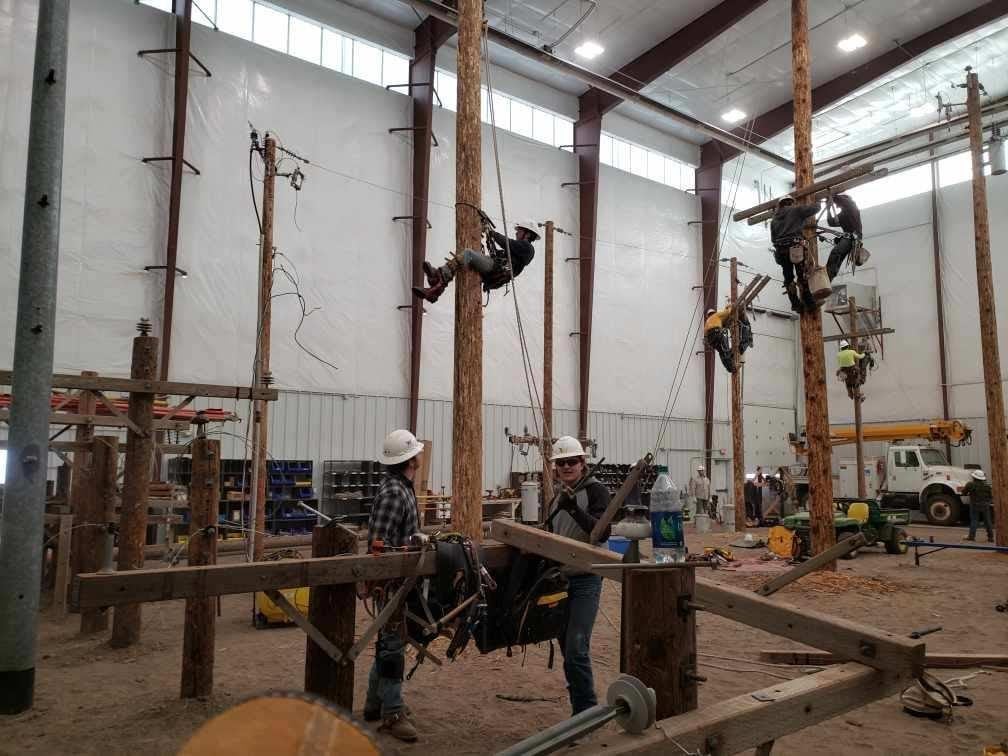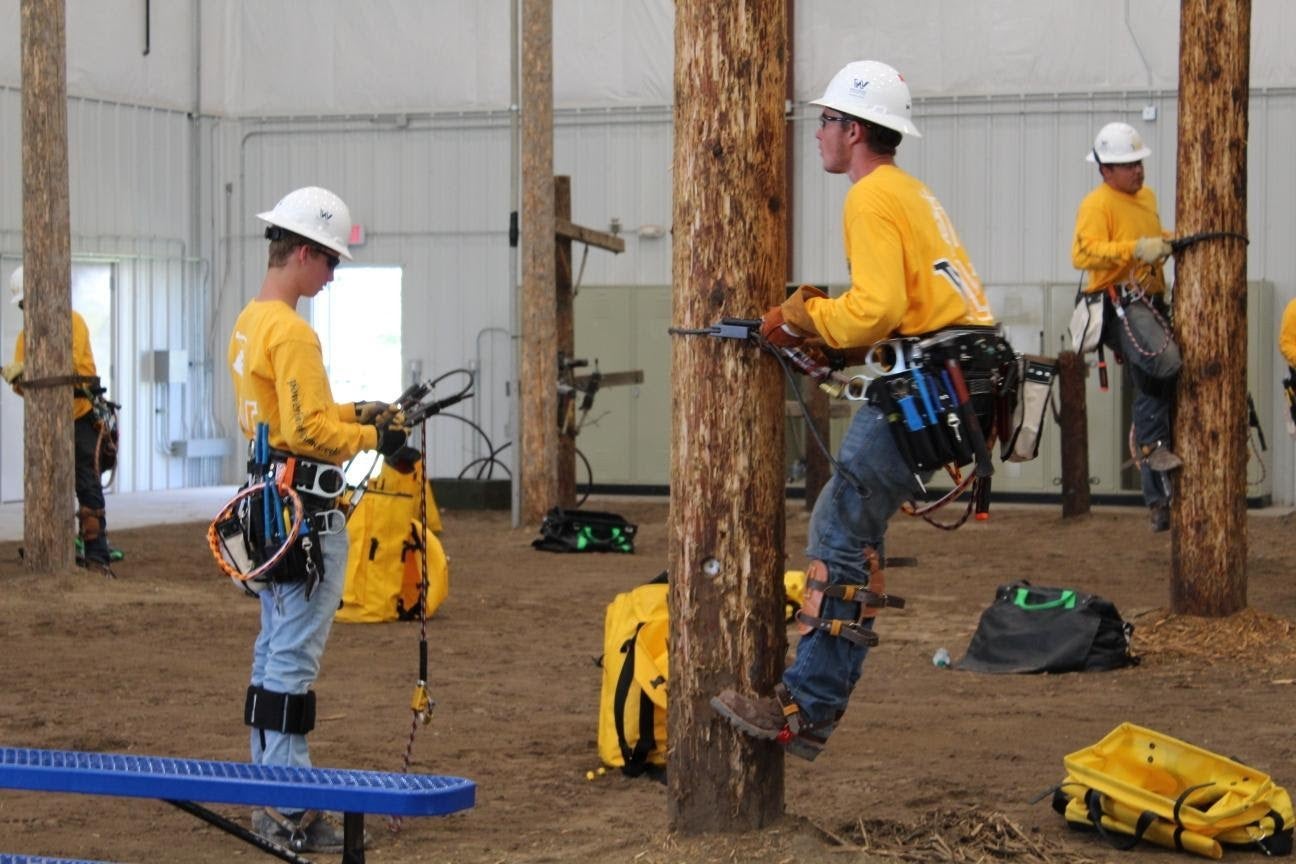Lineman School Helps Keep Talent Local
Michelle Pastor, Senior Education Program Advisor
When co-op managers recognized that often their linemen received years of valuable on-the-job training to become journeymen, only to leave for jobs closer to the communities in which they grew up, they decided they needed to make a change. They felt that a lineman training program closer to home would help to attract and retain talent from the local area.
Ready to face the challenge, several of Tri-State’s member systems joined forces in 2001 to create a high-quality lineman training program that would attract talented resident students that were more likely to establish roots in their communities and become long-term employees.
Local Lineman Training Programs
It all began in Nebraska when Ryan Reiber, manager of Panhandle Rural Electric Membership Association (PREMA) in Alliance, and Aavo Taaler, then-manager of Wheat Belt Public Power District in Sidney, discussed the need for a utility line training program in their state’s panhandle. At the time, the nearest program was 300 miles away.
Reiber and Taaler recruited rural and municipal utility leaders from Nebraska and reached out to utilities in Wyoming and Colorado to serve on a feasibility committee. They gained the necessary support and in 2006 launched the Powerline Construction and Maintenance Technology program at Western Nebraska Community College (WNCC) in Alliance, Nebraska. According to Reiber, “The city of Alliance stepped up in a big way by providing the building and land for the program’s lab facility as well as classroom space at its Library/College Attendance Center.”

Assistance for Lineman Training
The best program candidates are identified by the member system, and generally receive scholarships from their local electric co-op or PPD, after passing a college proficiency English and math exam. The pre-testing limits the number of qualifying students, resulting in a high teacher-to-student ratio (approximately one instructor for every 15 students). According to Earl Reilly, Certificated Loss Control Professional, operations manager/safety director at Wheat Belt PPD, “The quality of the trained students and not the quantity of graduating students, is most important.”
Innovative and Hands-On Training for Linemen
Located on 11 acres, the facility keeps pace with the evolving electric industry and has added an innovative indoor training aspect to ensure state-of-the-art training for the future linemen. “What makes ours a highly sought-after program is the involvement and support from our many industry partners that make up our advisory board and that are very committed to ensure that we always meet the changing industry needs,” explains Edward Salazar, program coordinator and instructor.
As part of the program, the utility will often provide paid internships of 180 hours, which gives the electric co-op or PPD a realistic assessment of the student’s skills and work ethic. The hands-on evaluation is more telling of the candidate’s qualifications than a one-hour interview. According to Reilly, “We look forward to having the students with us for an internship because they ask great questions about what they’re learning which makes for great discussion and review for the student and our linemen.”

Graduates of the program have an additional advantage as they already have the necessary certifications so the utility doesn’t have to spend time and money teaching them the basics.
In addition to the wins for co-ops and students, the city of Alliance, WNCC and Box Butte County experience positive economic impacts. Two instructor positions have been created and students rent housing locally and frequent area businesses.
Award-Winning Lineman Training School
The valuable relationship between the rural electric cooperative and the school was validated when PREMA received the 2020 Western Nebraska Community College Friend of the College award. According to Mary Sheffield, WNCC’s alumni relations and stewardship director, “This award is the highest award the college gives. Our partnership with PREMA is a shining example to the Nebraska panhandle of two organizations working together to help each other fulfill parts of our respective missions – to foster the well-being and economic growth of the communities we serve. It is our hope that the success of the lineman training school will foster more industry partnerships. Many of which are in the works right now.”
The lineman training program is an ideal example of utilities and communities working together for the benefit of many. The outcome is a quality training program that’s accessible to local students in order to create a talent pool with a long career horizon. Reiber adds, “The WNCC Utility Line Program has been a tremendous blessing for PREMA and all the area utilities. It has allowed us to keep the best and brightest close to home which is good for all of us.”
--
About Tri-State
Tri-State is a power supply cooperative, operating on a not-for-profit basis, serving electric distribution cooperatives and public power district member-owners in four states. Together with our members, we deliver reliable, affordable and responsible power to more than a million electricity consumers across nearly 200,000 square miles of the West. Visit www.tristate.coop.
